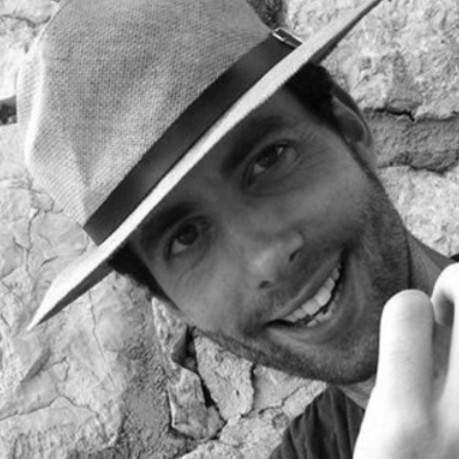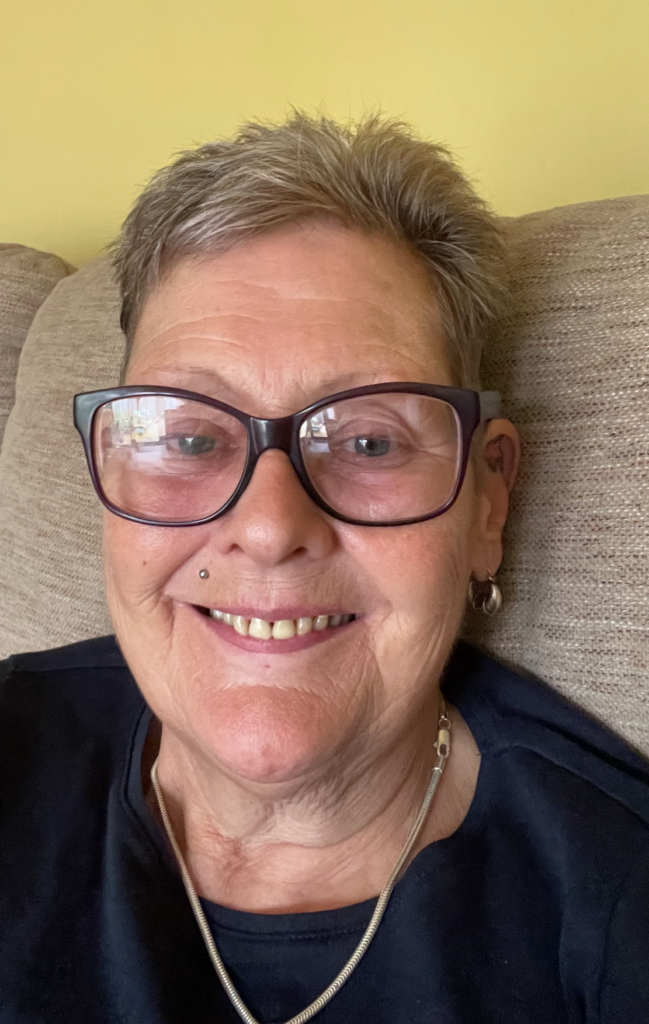Collaborative Leaders – Participant Story
A couple of weeks ago, we caught up with James and Yas, who had participated in our Collaborative Leaders programme, as a pilot in One Northern Devon. The purpose of this programme pilot was to test the theory that working ‘collaboratively’ with citizens and patients within the system can drive the improvement of services in order to better meet the needs of the wider society. Health and well-being are profoundly influenced by what happens in places and their communities as well as how services operating in such communities interconnect. The programme provided a safe space for curiosity and conversation. An opportunity to feel motivated, and be inspired, to work in collaboration and influence real change within the Communities we live.
James is a Communities Support and Development Manager for One Northern Devon and Yas joined the programme to help improve the services she had experienced. We wanted to find more about James and Yas’ project, their time on the programme and the programme’s impact on them.
Read the below interview to find out more about how this programme has inspired James and has been life changing for Yas! This interview demonstrates the importance of collaborating with our service users, patients and citizens and how involving them in these discussions can have a profound impact of their lives.
Non-urgent advice: Meet James & Yas!


Tell us more about your project during the collaborative leaders programme and how you got involved?
JAMES: One Northern Devon were tasked to try and support an admission avoidance and hospital discharge piece of work – this project has become known as community flow. So, you have patient flow within the hospital and then you’ll have the community flow which connects patients with their wider community once they come out of hospital. It’s all about connecting them with groups, organizations and opportunities within their community. One of those opportunities which we connected Yas with was the chance to come on to this collaborative leadership course, so I was teamed up with Yas. Yas was the test dummy within the service which she was also trying to make a better service. We asked the Community Flow Coordinator, who works to set up community support for people, to listen to us about how we think that service should be run from Yas’ perspective. This kind of put them on the spot and challenged them to run a community flow session with Yas. For Yas it was in this funny place to be in, she was using the service at the time and was also collaborating with me to change it.
YAS: The main thing that I like to do is mental health. But I would like to improve things for everybody, so that’s why I said that I’d get involved on the flow side, because they’re desperate for feedback. The Community Flow Coordinator has learnt a lot from me. We taught them how to listen properly by understanding the different ways in which people like to be listened to. By doing this, we were able to change the way community flow sessions work, making them more personal to the service-user, so they help connect people to services that support them. We did this through making personal profiles about who we are as a person and our interests.
JAMES: The Collaborative Leadership programme took six months. Yas and I clicked pretty quickly but I definitely think we needed that six months. For Yas, there was anger there with statutory services and not being listened to. When we first took her into the community flow service, I thought well that that was quite good and then when I came back and I was told Yas wasn’t listened to again and then I thought “oh, I really need to listen to you” to make things better.
What have you done since the collaborative leaders programme?
YAS: I would say I’m now a ‘collaborator’ working with the NHS or One Northern Devon, I am not just a ‘service-user’. I have been involved with a co-production meeting with One Northern Devon, focusing on their health inequalities strategy.
JAMES: This project has been recently changed its name to HealthEquity. So, it’s around fairness and health rather than just striving for everything to be ‘equal’ and build services that serves everyone. The purpose is co-production is to listen to our collaborators who have experienced services and help us to understand how we can start to remove health inequalities.
YAS: I went to the co-production day and thoroughly enjoyed that. I had people that were asking me if they could have my email to get in contact with me and someone wants to do a video with me about mental health. There is someone interested in me becoming a facilitator to support being a collaborator. I’ve also done a mental health first aid course with Encompass who want me to get involved with them and get feedback on services. So, I will be doing a confidentially course to support my work on this.
The work I am doing now is trying to connect with people who have experiences of using services. I think that if there is someone who has gone through something similar to you with services, they will connect more with you and share their experience. So then I can pass it on to services to help them improve.
So, my idea was for me to speak to people and tell them I’m not working for the NHS and say I’m trying to make the services better. In doing so, they might open up to me. I think it is very difficult to get true feedback from people.
People don’t always want to give negative feedback because they think they might lose the services they’ve already got.
I’m really excited and loving what I’m doing at the moment.
What did you learn from the Collaborative Leaders Programme?
JAMES: The standout tool for me was the ladder of inference. When learning about this, people suddenly went ‘Oh yeah, how I show up and how I talk has an effect, and I didn’t even realize I’m making assumptions about myself and about other people’. You tap into that psychological side of trying to be human or more human with each other. What does that even mean? and how do you show up? and were you to blame as a person? and you learn to take some responsibility – because you’re trying to ask other people to do the same.
(Click here to learn more about the ladder of inference)
YAS: Listening is the main thing that came out of the collaboration course and being compassionate to understand what somebody is going through.
Also, for me, making assumptions is a major one as well. You can’t make assumptions about somebody – I made assumptions of the NHS and got it wrong. Even if I see someone out in the streets, I don’t make assumptions now. From being involved in what the NHS is doing, I’ve got an understanding of funding and that some organisations or projects are only funded for a little while. So, it’s really interesting, whereas I didn’t have any knowledge of that when I was service-user. You don’t think about things like that.
JAMES: that kind of comment is proof that you become a practitioner. If you’re a ‘collaborator’, you take it seriously, and if you’re good at it, you probably have reflective practice built into what you do and it starts to affect your other life, not just your work life, because it’s a way of being – you’re literally having to change the way you think, act and behave. Then people can start to, not only develop themselves on a personal level, but really giving back to the statutory services.
So if you don’t understand and you have the assumptions Yas has described, you come into that place just with your experience of the service without any knowledge of what it’s like to design and run a service to and that’s where I think these things are really amazing because you just start to understand each other and rather than blaming each other, you start to get to a point where you understand and you want to help each other because you know you’re both there for the same reason.
I think this is what’s so great about this course. If somebody has the energy and the capacity and wants to go, just go for it.
What advice would you give to people who want to work collaboratively?
YAS: The main thing I think is about being compassionate, to understand what somebody is going through.
JAMES: You have to experience this don’t you. You can write a manual on it, you could read about it, you can go to a lecture on it, you could watch the video on it, but unless you experience what it’s like, what it is like to feel listened to, for the hierarchies to be dropped for you and the person you’re collaborating with.
Its a different way of working and you have to be willing to be vulnerable. It’s an actual mindset shift.
It takes time and you’re talking about building a trusting relationship and it not being a tick box exercise.
It’s like understanding how to grow a plant. You need all the right materials, nutrition and compost. It’s not just coming in and getting the job done. It’s about creating the soil and the conditions so that you can get the job done so you will become more effective and more efficient. But it you need to create that compost first and for me the collaborative leadership is creating compost. Without listening to people’s experience, nothing is going grow so you can waste loads of time, chucking seeds on concrete because we’ve done it for years, so we have to become farmers of people
We are in like an attacking phase but we need to put defences down so we can actually talk.
YAS: I just wish people would collaborate together more, because it would be interesting to see the positives and the negatives in every service and I think people would learn. Also, say they’re doing something that another person has done already, and it doesn’t work, don’t waste your money doing it – take the good from everyone instead. Then you’re not throwing resources away, which will be wasted. Also, when collaborating with those who have used a service, it’s important to speak their language and not your language or NHS language.
What are the personal outcomes of working collaboratively?
YAS: I think this is the best part of my life, because I feel listened to and I’m really enthusiastic to try and change or improve things.
JAMES: For me it’s given me the confidence to facilitate conversations better. Our facilitator once said to me “James, I hope you will be the one that stops people and says do you notice how we’re talking because I’m feeling like this…”. I feel like I have the confidence to challenge people to think and behave differently.
YAS: Our facilitator gave me the confidence to be involved in something. They said, “you are going get a lot of work, because you’re good”. Before the course, I had a lot of anger with NHS. But that’s not there now. I feel now that I can be there to help.
Any final thoughts?
JAMES: We’ve got everything to play for now, we can make this NHS incredible. Let’s just get in there and get messy and get dirty then come out with flowers because we’ve made compost.
YAS: It doesn’t matter how long it’s going take, as long as you get it right in the end. We’ve got to think of our children, our grandchildren.